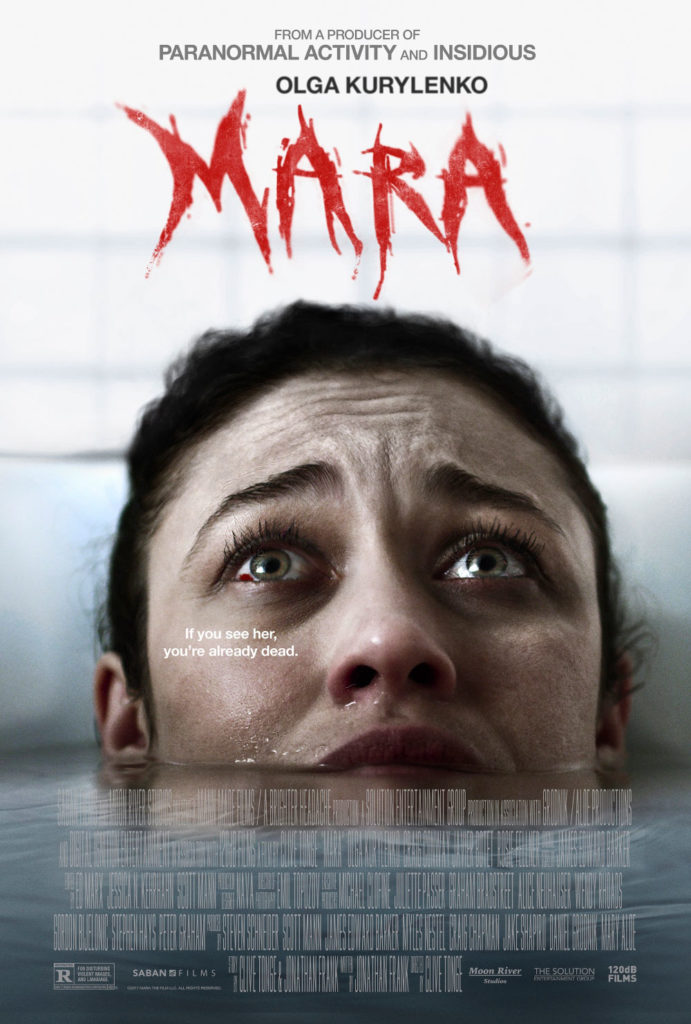 Sleep paralysis is a real condition that up to half of the people on Earth suffer at least once in their lives. Wikipedia describes it as, “…a state, during waking up or falling asleep, in which a person is aware but unable to move or speak.” That’s creepy enough as it is, but sleep paralysis can also be accompanied by hallucinations, which the sufferer may interpret as supernatural. Again, from the Wikipedia article on sleep paralysis:
Sleep paralysis is a real condition that up to half of the people on Earth suffer at least once in their lives. Wikipedia describes it as, “…a state, during waking up or falling asleep, in which a person is aware but unable to move or speak.” That’s creepy enough as it is, but sleep paralysis can also be accompanied by hallucinations, which the sufferer may interpret as supernatural. Again, from the Wikipedia article on sleep paralysis:
Sleep paralysis may include hypnagogic hallucinations, such as a supernatural creature suffocating or terrifying the individual, accompanied by a feeling of pressure on one’s chest and difficulty breathing. Another example of a hallucination involves a menacing shadowy figure entering one’s room or lurking outside one’s window, while the subject is paralyzed.
My sympathy goes out to those who have gone through this, but that is great fodder for a horror flick. I’m surprised there haven’t been more.
Mara, from 2018, is the first film from director Clive Tonge, from a screenplay by Jonathan Frank. In it, Olga Kurylenko stars as Kate, a psychiatrist working with the local police (filming was on location in Savannah, Georgia).
Helena (Rosie Fellner) has been accused of killing her husband, and Kate has been called in by Detective McCarthy (Lance E. Nichols) to determine whether or not she’s nuts. The answer seems obvious, as Helena claims that a sleep demon killed her husband, and the demon will be coming for her next. Her rantings and ravings lead to Kate committing her to an asylum while the police investigation is ongoing.
The bizarre claims made by Helena, along with the plight of Helena’s young daughter, Sophie (Mackenze Imsand), lead Kate to launch an investigation of her own, where she treats the idea of a sleep demon with the seriousness the police will not.
This isn’t a bad idea for a film. It’s the execution that falls short.
The largest problem, I think, is that none of the cast inhabit their roles to the full. From Kurylenko on down, the quality of line reads is rehearsal-like. No lines are flubbed, yet they have an unpracticed feel to them. Such consistency I have to lay at the feet of the director. Much of the cast is light on items in their IMDb pages, but there are some genuine professionals in this movie, and even they seem to be struggling at times.
That’s just conjecture, though. What I can blame on Tonge, with definitiveness, is when he had his cast get shouty. Principal offenders were Fellner, Craig Conway as Mara-suffering expositioner Dougie, and Marcus W. Weathersby as soon-to-be victim Saul. When the script called for these characters to emote, Tonge had them go into apocalyptic rages. Conway’s character Dougie is so over-the-top that I was half-worried the redness in his eyes was real, and not part of the plot. He looked as if he were about to have a stroke. High tension is appropriate for that character, but just a touch less would have made these scenes easier to watch. It’s one of the more extreme uses of the WHY WON’T ANYONE LISTEN TO ME?! movie trope.
What turns out to be an inherent feature of using sleep paralysis as a horror flick’s conceit is that the scares are telegraphed. When a character begins to drift off to sleep, a viewer can easily gird themselves for what’s about to happen. That doesn’t ruin things, but it does raise the degree of difficulty for Tonge. He makes up for the lack of surprise in the scares by keeping viewers from getting a good look at Mara until the last act. That’s solid decision making on Tonge’s part.
Mara is not a bad horror flick. Unfortunately for Tonge and company, it’s not a good horror flick, either. Between the performances and the over-reliance on cliché, Mara is set adrift amongst all the anonymous chaff of the genre. There’s just not a lot of there, there.
